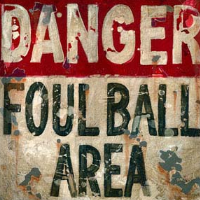U.S. Supreme Court Lays Off San Jose Pitch to Overturn Baseball Anti-Trust Exemption

Despite what baseball fans in San Jose may have heard, the sport is an amusement, not a business. Games are state affairs and don’t affect interstate commerce. Travel across state lines is only “a mere incident” and player performance is “not related to production.”
That’s what U.S. Supreme Court Chief Justice and former President William Howard Taft wrote for a unanimous court in 1922, establishing baseball’s exemption from the landmark 1890 Sherman Antitrust Act. Although some of the original reasoning was subsequently rejected and the Curt Flood Act of 1998 said baseball owners couldn’t treat players like indentured servants, the high court has reaffirmed the antitrust exemption multiple times over the years.
And the Roberts court is no different. The justices refused without comment this week to hear an appeal from San Jose officials who have been trying to wrest the Oakland A’s franchise from its Bay Area neighbor. Major League Baseball (MLB) resisted the move and beat back the argument that it had used illegal monopolistic power to have its way. The A’s owners did not join the legal action against the league.
The high court is fine with that kind of monopoly, as was the Ninth Circuit Court of Appeals in January when Judge Alex Kozinski wrote (pdf), “The City of San Jose steps up to the plate to challenge the baseball industry’s 92-year-old exemption from the anti-trust laws. It joins the long line of litigants that have sought to overturn one of federal law’s most enduring anomalies.”
The high court has suggested in the past that if anyone was going to monkey around with the rules for America’s former national pastime, it should be Congress.
MLB invoked a clause in its bylaws that gave the San Francisco Giants territorial rights to the San Jose area in 1990. Each of the 30 league franchises has veto power over a club moving into its operating territory.
The Oakland A’s owners don’t want to play in the dilapidated Coliseum, built in 1966. New stadiums come with luxury boxes and plumbing that works. They also offer new revenue streams, while tapping public coffers and resources in new and innovative ways.
The A’s owners are still trying to negotiate with Oakland about building a new stadium for baseball, even as the city tries to satisfy the Raiders football team owners, who aren’t happy with the crappy Coliseum. After a couple of years of discussions, people were getting excited at the prospect of building the Coliseum City project, which would include separate stadiums for baseball and football, as well as an arena for the world champion Golden State Warriors basketball team.
That probably isn’t going to happen. The project melted down shortly after then-Mayor Jean Quan said publicly that the future ruler of oil-rich Dubai had signed on as a partner. If he had, he wasn’t talking to sports radio shows about it like she was.
San Jose officials have talked about not developing the property earmarked for a new stadium in case Oakland can’t get its stadium act together, but Alameda County Supervisor Nate Miley told the San Jose Mercury News, “I don't think Major League Baseball and the A's are as enamored with San Jose the way they might have been before. I think when somebody sues you, they lose their allure.”
–Ken Broder
To Learn More:
San Jose Looks to Future Development amid Failed A's Stadium Project (by Ramona Giwargis, San Jose Mercury News)
High Court Move Could Help Oakland Keep A’s in Town (by Rachel Swan and Bob Egelko, San Francisco Chronicle)
San Jose Loses Legal Fight Against MLB over Oakland A's Plan (by Howard Mintz, San Jose Mercury News)
U.S. Supreme Court Rejects San Jose’s Bid to Lure Oakland A’s (by Bob Egelko, San Francisco Chronicle)
San Jose Whiffs on Appeal of MLB Anti-Trust Exemption (by Ken Broder, AllGov California)
Before the Flood: The History of Baseball's Antitrust Exemption (by Roger I. Abrams, Marquette Sports Law Review)
- Top Stories
- Controversies
- Where is the Money Going?
- California and the Nation
- Appointments and Resignations
- Unusual News
- Latest News
- California Forbids U.S. Immigration Agents from Pretending to be Police
- California Lawmakers Urged to Strip “Self-Dealing” Tax Board of Its Duties
- Big Oil’s Grip on California
- Santa Cruz Police See Homeland Security Betrayal in Use of Gang Roundup as Cover for Immigration Raid
- Oil Companies Face Deadline to Stop Polluting California Groundwater





